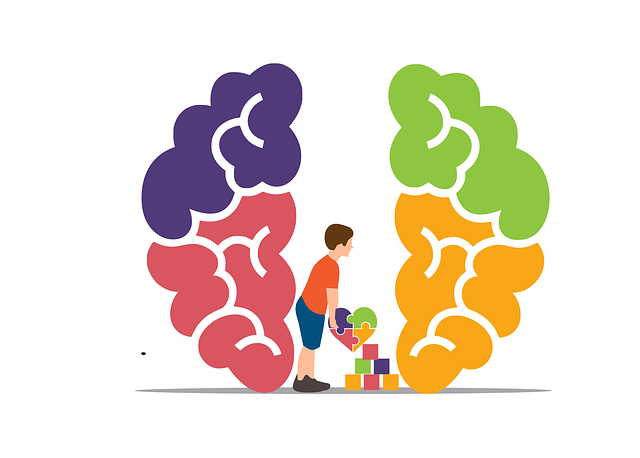Broomfield Hebrew Speaking Therapy (BHST) offers a comprehensive approach to emotion regulation, addressing the growing need for stress management in today's world. Through evidence-based methods like mindfulness meditation and cognitive behavioral techniques, BHST guides clients to understand their emotional responses, develop healthy coping strategies, and achieve emotional healing and growth. This culturaly sensitive therapy integrates language and personal narratives, focusing on emotional awareness as a foundational step. The program combines relaxation exercises, cognitive reframing, and self-care routines to manage difficult emotions, promote better decision-making, enhance relationships, and lead to a more balanced, fulfilling life.
Emotion regulation techniques are essential tools for navigating life’s challenges. This comprehensive guide explores various strategies, including the unique Broomfield Hebrew Speaking Therapy approach, to help individuals gain emotional control and enhance their well-being. From understanding the concept of emotion regulation to identifying and labeling emotions, practicing mindfulness, and cultivating self-compassion, these techniques empower folks to manage difficult feelings effectively.
- Understanding Emotion Regulation: Unraveling the Concept
- The Broomfield Hebrew Speaking Therapy Approach: A Unique Perspective
- Identifying and Labeling Emotions: Building Awareness
- Strategies for Managing Difficult Emotions
- Practicing Mindfulness and Self-Compassion in Daily Life
Understanding Emotion Regulation: Unraveling the Concept

Emotion regulation is a complex process that involves understanding, managing, and responding to our feelings in healthy ways. It’s about more than just suppressing emotions; it’s an essential skill that enables individuals to navigate life’s challenges with resilience. By learning effective emotion regulation techniques, people can enhance their emotional intelligence, leading to improved relationships, better decision-making, and overall well-being.
At Broomfield Hebrew Speaking Therapy, we recognize the significance of teaching these skills, especially in today’s fast-paced world where stress and anxiety are prevalent. Our therapists employ various methods, including mindfulness meditation and cognitive behavioral techniques, to help clients understand their emotional responses and develop strategies for managing them. These processes foster emotional healing and growth, empowering individuals to embrace a more balanced and fulfilling life.
The Broomfield Hebrew Speaking Therapy Approach: A Unique Perspective

The Broomfield Hebrew Speaking Therapy (BHST) Approach offers a unique perspective on emotion regulation techniques teaching, emphasizing the power of language and cultural context in therapeutic practices. This innovative method recognizes that emotions are deeply intertwined with our personal narratives and expressions, especially within specific cultural frameworks. By combining traditional therapy techniques with an understanding of Hebrew-speaking communities, BHST provides a comprehensive approach to emotional well-being.
The focus on emotional intelligence is central to this therapy model. It encourages clients to explore and understand their emotions while fostering open communication. Mindfulness meditation, as a key component, helps individuals develop a deeper awareness of their thoughts and feelings, enabling them to respond rather than react in emotionally charged situations. Additionally, BHST highlights the importance of community outreach program implementation, where therapeutic services are tailored to meet the unique needs of diverse Hebrew-speaking populations, ensuring accessibility and cultural sensitivity in emotion regulation support.
Identifying and Labeling Emotions: Building Awareness

Identifying and labeling emotions is a fundamental step in emotion regulation techniques teaching. At Broomfield Hebrew Speaking Therapy, we emphasize building emotional awareness as the cornerstone of our mental wellness podcast series production. By helping individuals recognize their feelings and giving them names, we empower them to understand that all emotions, whether positive or negative, are temporary and manageable. This simple yet powerful practice forms the basis for effective mood management strategies.
Through communication strategies tailored for diverse audiences, our approach teaches clients to detect subtle changes in their emotional states. Recognizing early warning signs allows for prompt intervention, preventing emotions from escalating into overwhelming experiences. By mastering this skill, individuals gain a sense of control over their reactions, fostering better mental wellness and overall well-being.
Strategies for Managing Difficult Emotions

Managing difficult emotions is a vital skill, and Broomfield Hebrew Speaking Therapy offers effective strategies to help individuals cope. One powerful technique involves identifying and understanding one’s emotional triggers. By recognizing what sets off strong feelings, people can begin to develop healthy responses. For instance, if public speaking is a trigger for anxiety, a therapist might guide the individual through relaxation exercises and cognitive reframing to change their perspective and reduce fear.
Additionally, therapy encourages the creation of a comprehensive risk management plan, similar to what’s explored in Risk Management Planning for Mental Health Professionals. This involves learning to assess emotional situations, set boundaries, and develop coping mechanisms tailored to individual needs. Incorporating self-care routines, as suggested in Public Awareness Campaigns Development and Self-Care Routine Development for Better Mental Health, can also significantly enhance emotion regulation. Simple practices like mindful breathing, regular exercise, and maintaining a balanced diet contribute to overall mental well-being and make managing emotions more manageable.
Practicing Mindfulness and Self-Compassion in Daily Life

Practicing mindfulness and self-compassion in daily life is a powerful tool for emotion regulation, as taught by professionals at Broomfield Hebrew Speaking Therapy. Mindfulness involves being fully present in the moment, observing thoughts and feelings without judgment. This technique helps individuals gain awareness of their emotional triggers, allowing them to respond rather than react impulsively. By cultivating mindfulness, people can enhance their ability to navigate life’s challenges with greater clarity and composure.
Self-compassion, on the other hand, encourages individuals to treat themselves with kindness and understanding, just as they would a good friend. This involves acknowledging and accepting difficult emotions, rather than trying to suppress or avoid them. Incorporating self-compassion practices into daily routines can foster mental wellness and create a more supportive inner dialogue. These techniques are particularly valuable in the context of Cultural Sensitivity in Mental Healthcare Practice, where understanding one’s emotional responses is crucial for effective communication and treatment, especially when considering the development of Mental Wellness Coaching Programs.
Emotion regulation is a powerful tool for enhancing overall well-being, and the techniques discussed in this article offer valuable insights. From understanding the concept to exploring unique therapeutic approaches like the Broomfield Hebrew Speaking Therapy, each section provides practical strategies for managing emotions effectively. By identifying and labeling emotions, practicing mindfulness, and embracing self-compassion, individuals can navigate their emotional landscape with greater ease. This holistic approach to emotion regulation has the potential to revolutionize personal growth and foster a more resilient mindset.














